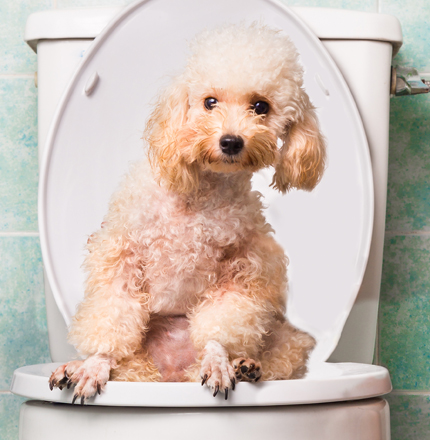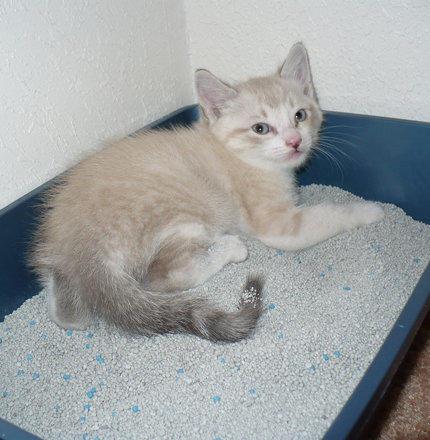The scoop on your pet’s poop
Every day at our hospital, and at animal hospitals all around the country, people bring us gifts. We really appreciate the thoughtfulness of our guests who bring us the occasional box of doughnuts, bagels, homemade cookies and other sweet treats! But the ‘gift’ that we get more than any other does not come in a box, a colorful tin or a bag that says ‘Einstein’s’. These gifts are usually in a ziplock bag with a pet’s name written on the outside. Sometimes it’s in a vial that is being returned to us- because we asked. We’re talking about poop. Don’t get me wrong. I don’t exactly like poop, and I’m guessing that you probably are not that thrilled about the topic either. But, as a veterinarian, I’m expected to be an expert on your pet’s poop- so let’s talk about it.
 When these little gifts are dropped off at Tampa Vet, it makes us happy. It tells us that you want to ensure your pet’s poop is free from parasites like tapeworms, roundworms, whipworms and hookworms. These parasites, if left unchecked, can wreak serious havoc on your pet’s health- and possibly yours too!
When these little gifts are dropped off at Tampa Vet, it makes us happy. It tells us that you want to ensure your pet’s poop is free from parasites like tapeworms, roundworms, whipworms and hookworms. These parasites, if left unchecked, can wreak serious havoc on your pet’s health- and possibly yours too!
What we’re looking for when we test your pet’s poop
As mentioned above- there are 4 main parasites that we don’t want to find- a negative fecal test is a good thing! Most of the parasites are not visible to the naked eye. Tapeworms are usually the only intestinal parasite which will be visible in your pet’s stool.
The tapeworm is usually introduced to your pet from a flea. Even if your pet is routinely given their flea prevention as recommended, fleas can still land on your pet. If your pet bites at a flea, and ingests it- they could get tapeworms- if the flea is a host to tapeworm larvae. When the tapeworm begins to grow in your pet’s intestines, small segments will break off, which are usually visible in your pet’s stool. It’s not the end of the world, and it’s usually easily treatable.
Hookworms are the most prevalent intestinal parasite here in Florida. In fact, 12% of hookworm positive pets in the country are found here in Florida. Locally, in Hillsborough County, 1 out of 17 dogs test positive for hookworms. Hookworms use their ‘hook-like’ mouths to latch onto the wall of your pet’s intestines, where they will consume blood. There are no visible signs of a hookworm infection- although a serious hookworm infection could cause a bad case of loose stool in your pet. Severe infestations could lead to anemia if left untreated.
If you like to work in the yard and plant flowers or other types of decorative plants, you may be surprised to know that your hobby could increase your pet’s probability of getting roundworms. Recent scientific studies show that around 15% of potting soil is contaminated with roundworm and hookworm eggs. These microscopic eggs in the soil can easily transfer to your pet’s feet or coat. If your pet licks at their paws, or regularly grooms themselves, they ingest the eggs which can lead to a parasite infestation in your pet’s intestinal tract.
Roundworms are no joke. They are a zoonotic disease, which means the parasite can be transmitted from your pet to you. Roundworms in humans can cause a variety of issues, including blindness, liver problems as well as complications with the heart and lungs. Most health issues occur within children, as they are most susceptible- but adult health problems due to roundworms have been well documented.
 The good news is that with routine prevention, intestinal parasites don’t need to be a concern. Many of the flea prevention products we offer are combined with parasite prevention. Even if your pet receives parasite prevention each month, we still recommended an annual fecal test to ensure your pet is parasite free. If your pet tests positive- it’s not the end of the world- and it doesn’t mean you’re a bad pet parent. Like poop, worms happen. Usually a de-wormer will be prescribed, and we’ll want to check your pet’s sample again in a few weeks to make sure we’ve eliminated the problem. We realize that the thought of bringing in your pet’s poop is not the the most glamorous thing on your to-do list, but your pets will thank you- and so will we.
The good news is that with routine prevention, intestinal parasites don’t need to be a concern. Many of the flea prevention products we offer are combined with parasite prevention. Even if your pet receives parasite prevention each month, we still recommended an annual fecal test to ensure your pet is parasite free. If your pet tests positive- it’s not the end of the world- and it doesn’t mean you’re a bad pet parent. Like poop, worms happen. Usually a de-wormer will be prescribed, and we’ll want to check your pet’s sample again in a few weeks to make sure we’ve eliminated the problem. We realize that the thought of bringing in your pet’s poop is not the the most glamorous thing on your to-do list, but your pets will thank you- and so will we.
Got any more questions about your pet’s doo-doo? Hit us up on Facebook- and we’ll give you the straight poop online. For even more information about parasites- from fleas & ticks to the ones we discussed here- visit the Companion Animal Parasite Council’s website at www.capcvet.org.
